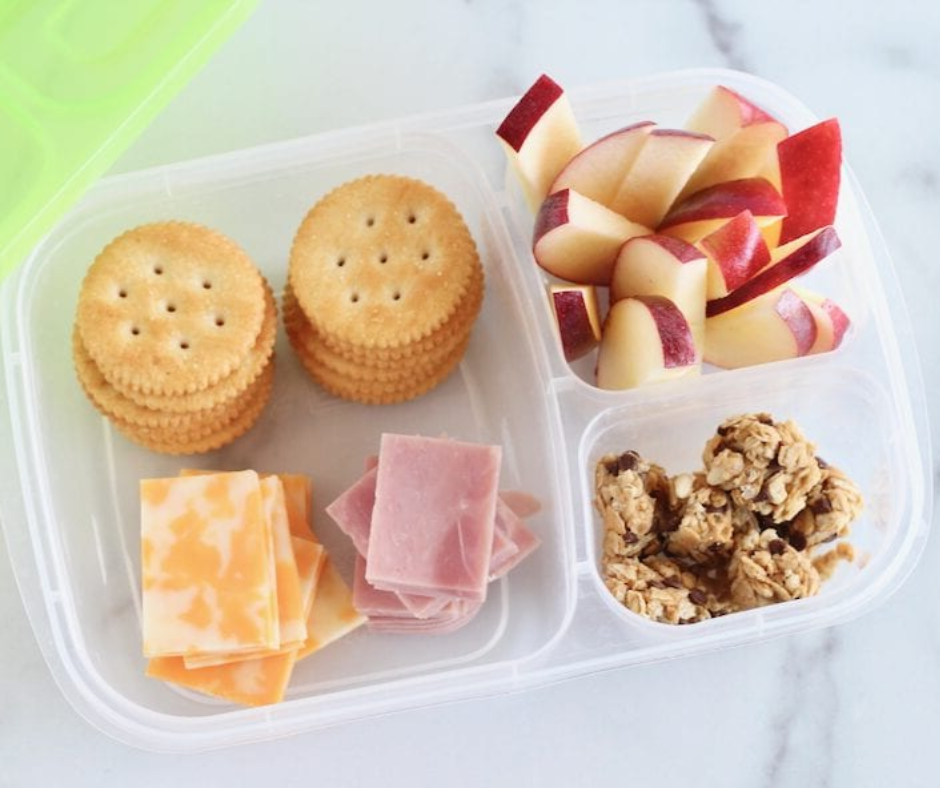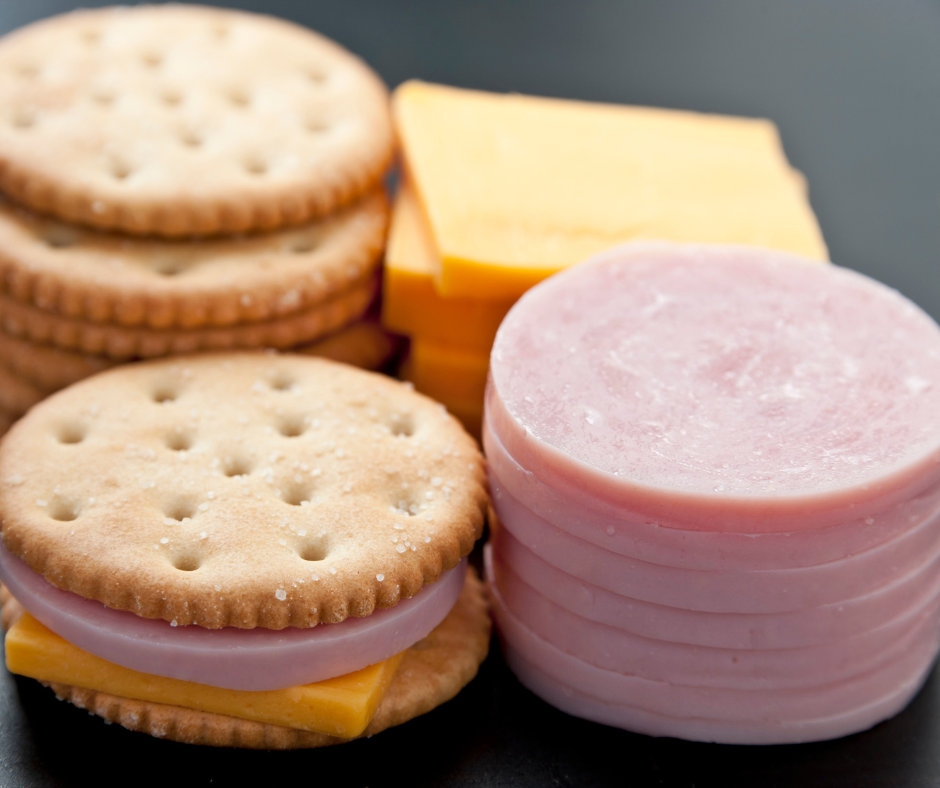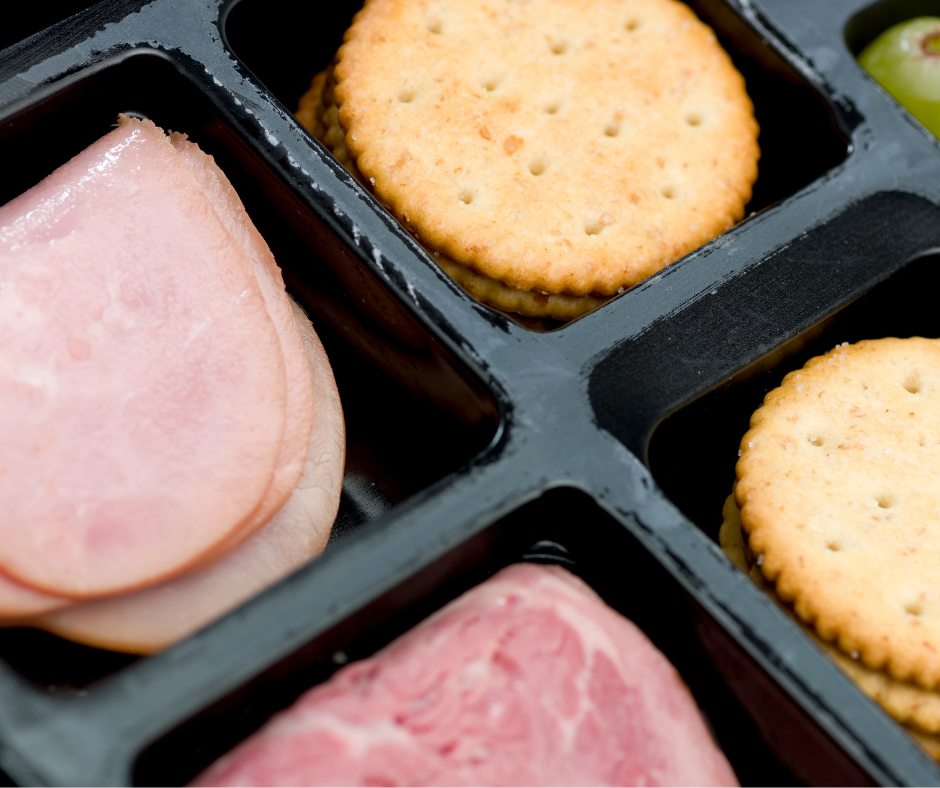Introduction
The question of ‘Do Lunchables Have to Be Refrigerated?‘ has been a subject of debate and curiosity among consumers. Lunchables, which are pre-packaged meal kits, have gained popularity for their convenience and ease of use, especially for packing school lunches or on-the-go snacks. In this article, we will delve into the truth behind the need for refrigeration regarding Lunchables.
Why The Question About Refrigerating Lunchables?
The question about refrigerating Lunchables arises because these meal kits contain perishable ingredients such as meat, cheese, and sometimes yogurt or fruit. It is essential to ensure that these perishable items stay fresh and safe to consume.
It is recommended that Lunchables be stored in the refrigerator to maintain their quality and prevent bacterial growth. The packaging of Lunchables is designed to keep the contents cool for a certain period, usually a few hours. Still, it is always best to refrigerate them as soon as possible, especially if you are not consuming them immediately.
The Controversy Surrounding Lunchables And Their Ingredients
There has been some controversy surrounding Lunchables and their ingredients. Critics argue that the processed nature of the ingredients, such as cured meats and processed cheese, may not be the healthiest choice for a balanced diet. Others express concerns about the high sodium and preservative content in Lunchables.
It is important to note that Lunchables are designed to be convenient and portable, making them suitable for on-the-go situations. However, they should not be considered a substitute for a nutritious, well-rounded meal. They can be enjoyed as an occasional treat or convenience option. Still, it is always advisable to incorporate fresh fruits, vegetables, and other wholesome foods into your diet for optimal nutrition.
In conclusion, while Lunchables may not require immediate refrigeration, it is recommended to store them in the refrigerator to maintain freshness and prevent any potential food safety issues. However, it is essential to be mindful of the overall nutritional value of Lunchables and to incorporate a variety of healthy foods into your diet for a balanced and wholesome meal.
The Ingredients Of Lunchables
The Processed Nature Of Lunchables
The debate surrounding Lunchables and their ingredients stems from the fact that many components are heavily processed. The cured meats and processed cheese found in Lunchables have raised concerns regarding their impact on overall health and nutrition. Critics argue that these processed ingredients may not be the healthiest choice for a balanced diet.
While it is true that Lunchables are convenient and portable, it is important to remember that they should not be considered a substitute for a nutritious, well-rounded meal. The focus should always be on incorporating fresh fruits, vegetables, and other wholesome foods into one’s diet for optimal nutrition.
The Number Of Ingredients In Lunchables And Their Effects
Another aspect of Lunchables that has sparked controversy is the number of ingredients they contain. Some individuals express concerns about the high sodium and preservative content in these pre-packaged meal kits. While these ingredients help to prolong the shelf life of Lunchables, they may not align with everyone’s dietary preferences or health goals.
It is worth noting that Lunchables are designed for on-the-go situations and offer convenience when time is limited. However, it is essential to be mindful of the overall nutritional value of Lunchables and to incorporate a variety of healthy foods into one’s diet for a balanced and wholesome meal.
In conclusion, while Lunchables may not require immediate refrigeration, it is still recommended to store them in the refrigerator to maintain freshness and prevent any potential food safety issues. It is important to understand that Lunchables should be enjoyed as an occasional treat or convenience rather than a substitute for a nutritious meal. By prioritizing a diverse range of fresh and wholesome foods, individuals can ensure they are receiving the necessary nutrients for a healthy lifestyle.
Do Lunchables Have to Be Refrigerated?
Exploring The Need For Refrigeration In Lunchables
Lunchables, the popular pre-packaged meal kits, have become a staple for busy individuals seeking a quick and convenient lunch option. However, there is a common question that often arises: Do lunchables have to be refrigerated? The answer may surprise you.
Lunchables, with their combination of meat, cheese, and crackers, may not require immediate refrigeration due to the nature of their ingredients. The processed nature of these meal kits allows them to maintain their quality without needing constant refrigeration. This is made possible by the curing and processing methods used on the meats and cheese, which help to inhibit bacterial growth and extend their shelf life.
While Lunchables may not require immediate refrigeration, it is still recommended to store them in the refrigerator to maintain freshness and prevent any potential food safety issues. Refrigeration can help slow down the growth of bacteria, ensuring that the meal remains safe for consumption. Plus, eating a chilled Lunchable can provide a refreshing and enjoyable eating experience.
The Implications Of Not Refrigerating Lunchables
While Lunchables may be convenient and appealing, it is essential to understand the implications of not refrigerating them. Without proper refrigeration, the quality and safety of the ingredients may be compromised. The combination of cured meats and processed cheese can be susceptible to spoilage and bacterial growth if not kept at the appropriate temperature.
Consuming Lunchables that have not been refrigerated when necessary may increase the risk of foodborne illnesses. This is especially true during warm weather or when Lunchables are exposed to high temperatures for an extended period. Bacteria can multiply quickly in these conditions, potentially leading to food poisoning if consumed.
To ensure the safety and quality of Lunchables, it is best to adhere to the guidelines provided on the packaging. Most Lunchables packages recommend refrigeration to maintain their freshness and minimize any potential health risks. Following these instructions will help to preserve the taste, texture, and overall quality of the meal.
In conclusion, while Lunchables may not require immediate refrigeration, it is still recommended to store them in the refrigerator to maintain freshness and prevent any potential food safety issues. It is important to understand that Lunchables should be enjoyed as an occasional treat or convenience rather than a substitute for a nutritious meal. By prioritizing a diverse range of fresh and wholesome foods, individuals can ensure they are receiving the necessary nutrients for a healthy lifestyle. So, next time you reach for a Lunchable, give it a proper chill to enjoy the best eating experience possible.
Is It Safe To Not Refrigerate Lunchables?
The Potential Risks And Consequences Of Not Refrigerating Lunchables
Lunchables, the popular pre-packaged meal kits, have undoubtedly become a convenient and quick lunch option for busy individuals. One common question is, ‘Do Lunchables Have to Be Refrigerated?’. While it’s true that Lunchables can maintain their quality without immediate refrigeration due to the curing and processing methods used on the meats and cheese, it is still recommended to store them in the refrigerator for several reasons.
The combination of cured meats and processed cheese in Lunchables can be susceptible to spoilage and bacterial growth if not properly stored. Without refrigeration, the quality and safety of the ingredients may be compromised, increasing the risk of foodborne illnesses. This is particularly true during warm weather or if Lunchables are exposed to high temperatures for an extended period. Bacteria can multiply rapidly in these conditions, potentially leading to food poisoning if consumed.
Refrigeration helps to slow down the growth of bacteria, ensuring that the meal remains safe for consumption. Storing Lunchables in the refrigerator maintains their freshness and prevents any potential health risks associated with not refrigerating them. Additionally, eating a chilled Lunchable can provide a refreshing and enjoyable eating experience.
Expert Opinions And Research On The Subject
According to food safety experts, refrigeration is crucial for maintaining the quality and safety of perishable foods like Lunchables. The United States Department of Agriculture (USDA) recommends refrigerating Lunchables to prevent them from entering the temperature danger zone, where bacteria can rapidly multiply.
A study published in the Journal of Food Protection found that cured meats and processed cheeses, like those found in Lunchables, can support the growth of harmful bacteria when exposed to temperatures above 41°F (5°C). The study highlights the importance of refrigeration in preventing foodborne illnesses.
Furthermore, reputable organizations such as the Centers for Disease Control and Prevention (CDC) emphasize the importance of refrigerating perishable foods to reduce the risk of microbial growth and foodborne illnesses.
In conclusion, while Lunchables may not require immediate refrigeration due to their processed nature, it is still recommended to store them in the refrigerator to maintain their freshness and quality and minimize any potential health risks associated with bacterial growth. It is essential to follow the guidelines provided on the packaging to ensure the safety of these meal kits. By prioritizing food safety practices, individuals can enjoy Lunchables as a convenient option while minimizing the risk of foodborne illnesses.
Lunchables And Nutrition
The Nutritional Value Of Lunchables
Lunchables, the popular pre-packaged meal kits, have become a convenient and quick lunch option for many individuals. However, when considering their nutritional value, it is important to understand what is included in these meals.
Lunchables typically consist of a combination of crackers, lunchmeat, cheese, and sometimes a sweet treat or a beverage. While they may provide a convenient solution for busy people, they are not considered a nutritionally balanced meal.
These meal kits are often high in sodium and saturated fat due to the processed nature of the ingredients. The lunchmeat and cheese can also contain additives and preservatives to increase shelf life. Additionally, the included sweet treats and beverages are often high in sugar and can contribute to empty calories.
It is essential to read the packaging and nutritional information to understand the specific ingredients and their nutritional content. This will allow for making informed decisions about incorporating Lunchables into a balanced diet.
Are There Healthier Alternatives To Lunchables?
For individuals looking for a healthier alternative to Lunchables, there are several options to consider. These alternatives can provide a more balanced nutrient profile and better align with various dietary preferences:
- DIY Lunchables: Creating your version of Lunchables allows you to control the quality of ingredients and make healthier choices. Use whole-grain crackers or wraps, lean protein options like grilled chicken or turkey, and include a variety of fresh fruits and vegetables.
- Bento Box Style Lunches: Bento box-style lunches provide a visually appealing and nutritious alternative to Lunchables. Fill compartments with whole grains, lean proteins, fruits, and vegetables. This allows for a well-rounded meal that offers a variety of nutrients.
- Wrap or Sandwich with Whole Foods: Preparing a wrap or sandwich using whole-grain bread or wrap, lean protein, and plenty of veggies can be a quick and easy alternative to Lunchables. This option allows for customization and ensures a well-balanced meal.
- Snack Boxes: Instead of a traditional lunch-style meal, snack boxes offer various nutritious options. Include a mix of fresh fruits, vegetables, whole-grain crackers, nuts or seeds, and a source of protein such as hummus or Greek yogurt. This allows for a selection of snacks that provide a range of nutrients.
Remember, the goal is to balance nutrients and whole foods into your meals. By opting for alternatives to Lunchables that prioritize nutrient-dense ingredients, you can make healthier choices while still enjoying the convenience of pre-packaged meals.
In conclusion, while Lunchables offer convenience, it is important to understand their nutritional value. These meal kits are not considered a balanced meal due to their high sodium, saturated fat, and sugar content. When looking for healthier alternatives, consider making your versions using whole foods, exploring bento box-style lunches, or opting for wraps or sandwiches with nutrient-rich ingredients. By making informed choices, you can enjoy convenient meals that align with your dietary preferences and provide the nutrients for optimal health.
Conclusion
Now you should know the answer to ‘Do Lunchables Have to Be Refrigerated?’. Lunchables, the conveniently packaged meal kits, have become a go-to choice for many individuals looking for a quick and easy lunch option. However, it is important to understand the truth about whether Lunchables have to be refrigerated, as well as consider the impact on children’s health and well-being.
Understanding The Truth About Refrigerating Lunchables
Contrary to what some may believe, Lunchables do not necessarily have to be refrigerated. The individual components of Lunchables, such as the crackers, lunchmeat, and cheese, are processed and shelf-stable. This means they can remain unrefrigerated for some time without posing immediate health risks.
However, it is important to note that refrigeration can help maintain the quality and freshness of the ingredients. The cold temperature helps slow down the growth of bacteria and extends the shelf life of the product. It is recommended to keep Lunchables refrigerated, especially if they have been opened or if you plan to eat them later in the day.
Considering The Impact On Children’s Health And Well-being
While Lunchables may provide convenience and satisfy hunger on the go, it is crucial to consider the impact they may have on children’s health and well-being. Lunchables are often high in sodium, saturated fat, and sugar due to the processed nature of the ingredients and the inclusion of sweet treats and beverages.
Repeated consumption of Lunchables as a regular meal option can contribute to an imbalanced diet that lacks essential nutrients. It is important to incorporate a variety of whole foods, such as fruits, vegetables, lean proteins, and whole grains, into children’s diets to support their growth and development.
Parents and caregivers can opt for healthier alternatives to Lunchables, such as homemade lunch kits with fresh ingredients, bento box-style meals, or wraps and sandwiches made with nutrient-rich foods. These alternatives provide a more balanced nutrient profile and allow children to develop a taste for a wide range of healthy foods.
In conclusion, while Lunchables do not necessarily have to be refrigerated, it is still recommended to do so for optimal quality and freshness. When considering the impact on children’s health and well-being, it is important to make informed choices and prioritize a balanced diet that includes a variety of nutrient-dense foods. By doing so, parents and caregivers can ensure that children receive the necessary nutrients for optimal health while enjoying the convenience of pre-packaged meals.
FAQs
Q: Do Lunchables Have to Be Refrigerated?
A: Yes, Lunchables are meant to be kept refrigerated.
Q: Can Lunchables be eaten without refrigeration?
A: While it is recommended to keep Lunchables refrigerated, they can be consumed at room temperature for a short period. However, it is important to note that the quality and freshness may be compromised if they are not chilled.
Q: Why do Lunchables need to be refrigerated?
A: Lunchables contain perishable ingredients like meat, cheese, and mayo. Refrigeration helps to prevent the growth of bacteria and ensures the safety and freshness of the food.
Q: Are Lunchables safe to eat if left unrefrigerated for a few hours?
A: It is generally safe to consume Lunchables left unrefrigerated for a few hours, especially if the temperature is not excessively high. However, it is always best to use your judgment and consider the overall condition of the food before consuming it.
Q: Can Lunchables be taken on field trips or packed in a lunchbox?
A: Yes, Lunchables are convenient for field trips and packed lunches. They are designed to be portable and convenient for on-the-go consumption. Just make sure to keep them refrigerated until ready to be consumed.
Q: Are there any Lunchables varieties that do not require refrigeration?
A: Currently, all Lunchables varieties require refrigeration to maintain their quality and safety. It is important to follow the storage instructions provided on the packaging to ensure optimal freshness.
Q: Can Lunchables be frozen?
A: No, Lunchables are not meant to be frozen. Freezing can affect the texture and quality of the ingredients, compromising the overall taste and experience.
Q: Are there any alternative options for lunch/snack packs that do not require refrigeration?
A: Yes, there are alternative options available in the market that offer non-perishable snacks and meals for convenience. These options are specifically designed to be shelf-stable and do not require refrigeration for storage.
In conclusion, Lunchables should be refrigerated to maintain their freshness, quality, and safety. While they can be consumed at room temperature briefly, refrigeration is recommended to prevent bacterial growth. It is important to follow the storage instructions and use your judgment to ensure the food is fit for consumption.



